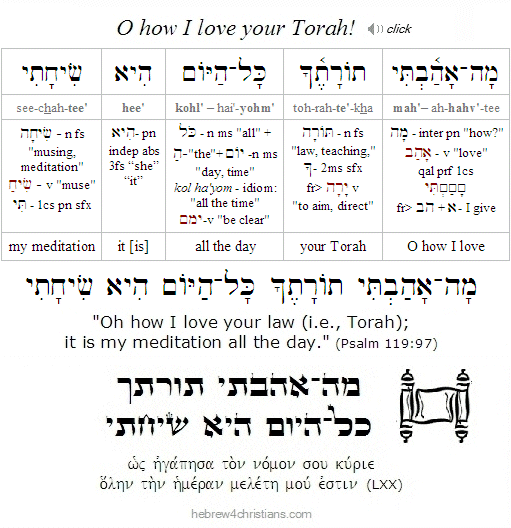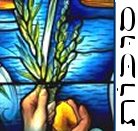|
We learn about God through the witness of His Spirit as preserved in the Holy Scriptures, but to properly interpret the Scriptures we must read in context, and therefore we must endeavor to understand the New Testament in light of the Torah, not the other way around... Without the background of the Torah and the history of the Jewish people, the meaning and terms of the New Testament will be obscure and subject to misunderstanding (John 4:22; Rom. 9:4).
It is written in our Scriptures: "Yeshua the Messiah became a servant to the circumcised to show God's truthfulness, in order to confirm the promises given to the fathers" (Rom. 15:8). He came from heaven, "tabernacling with us," as Israel's promised Redeemer and the manifest revelation of God (John 1:14; 1 Tim. 3:16), his mother Miriam (Mary) being miraculously conceived by the power of the Holy Spirit, Yeshua was he was born the "King of the Jews" in Bet-Lechem (Bethlehem), "born under the law" as the "Second Adam" (or "Son of Man"); and was circumcised according to the Torah on the eighth day, being given the Hebrew name "Yeshua," God's Salvation. Yeshua grew up as a faithful Jew, fluent in Torah reading and study (Luke 4:16-21; John 4:22). He observed all the Torah holidays as prescribed by the law of Moses. When he began his public ministry, he was baptized to identify himself as the "Son of Man," calling out to the lost sheep of the house of Israel to repent and believe the message of God's redemption revealed in him. Yeshua repeatedly taught that the Scriptures foretold of his coming and born witness of Him (John 5:39). He foretold his sacrificial death for our sins and his resurrection from the dead (Mark 10:32-34). After his crucifixion and resurrection, he told his disciples that he is the central meaning of all the Jewish Scriptures: "And beginning with Moses and all the Prophets, he interpreted to them in all the Scriptures the things concerning himself" (Luke 24:27; John 5:39; 8:58). He then instructed his followers to go to Jerusalem to receive the Holy Spirit on the very day of Shavuot ("Pentecost"), in fulfillment of the Scriptures. Later, when he miraculously called out to the Apostle Paul to follow him, Yeshua identified himself as the Jewish Messiah by using the Hebrew language (Acts 26:14).
We study Torah to know Yeshua, the "Living Torah" better, as he said: "Therefore every scribe who has been trained for the kingdom of heaven is like a master of a house, who brings out of his treasure what is new and what is old" (Matt. 13:52). Our Lord observed Sukkot (and all the holidays of Torah), and he wanted his followers to understand why (Luke 24:27; Luke 24:44; John 1:45; John 5:46; Gal. 4:4-5; etc.). After all, Yeshua wanted his followers to understand his ministry, but to do so, we must understand its context in Jewish history and tradition. Sukkot, or "Tabernacles" is part of our heritage as those who trust in the LORD God of Israel and his salvation given in Yeshua. Amen.
Hebrew Lesson:
Psalm 119:97 Hebrew Reading (click):
 |
|


